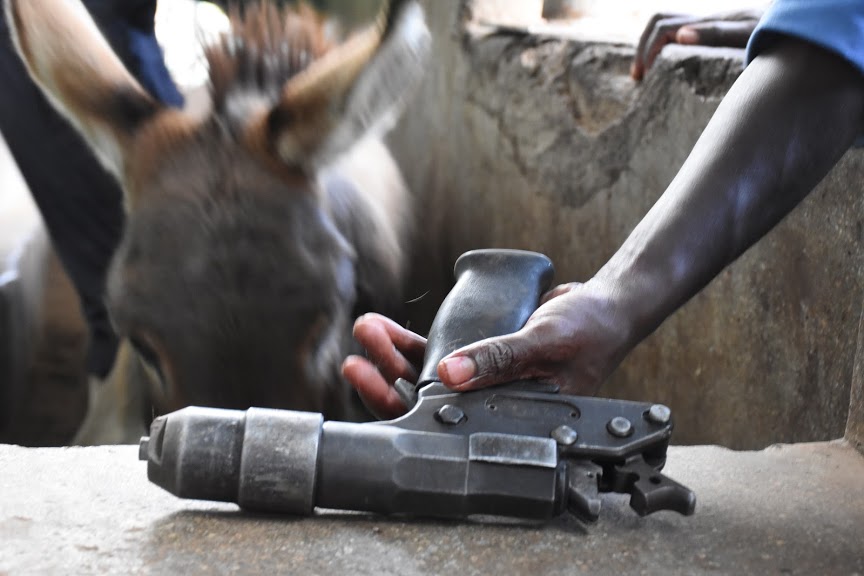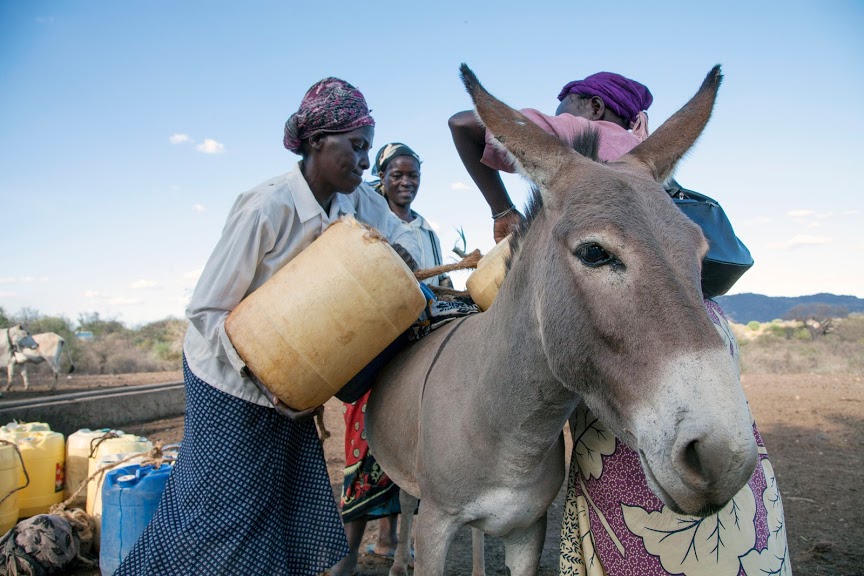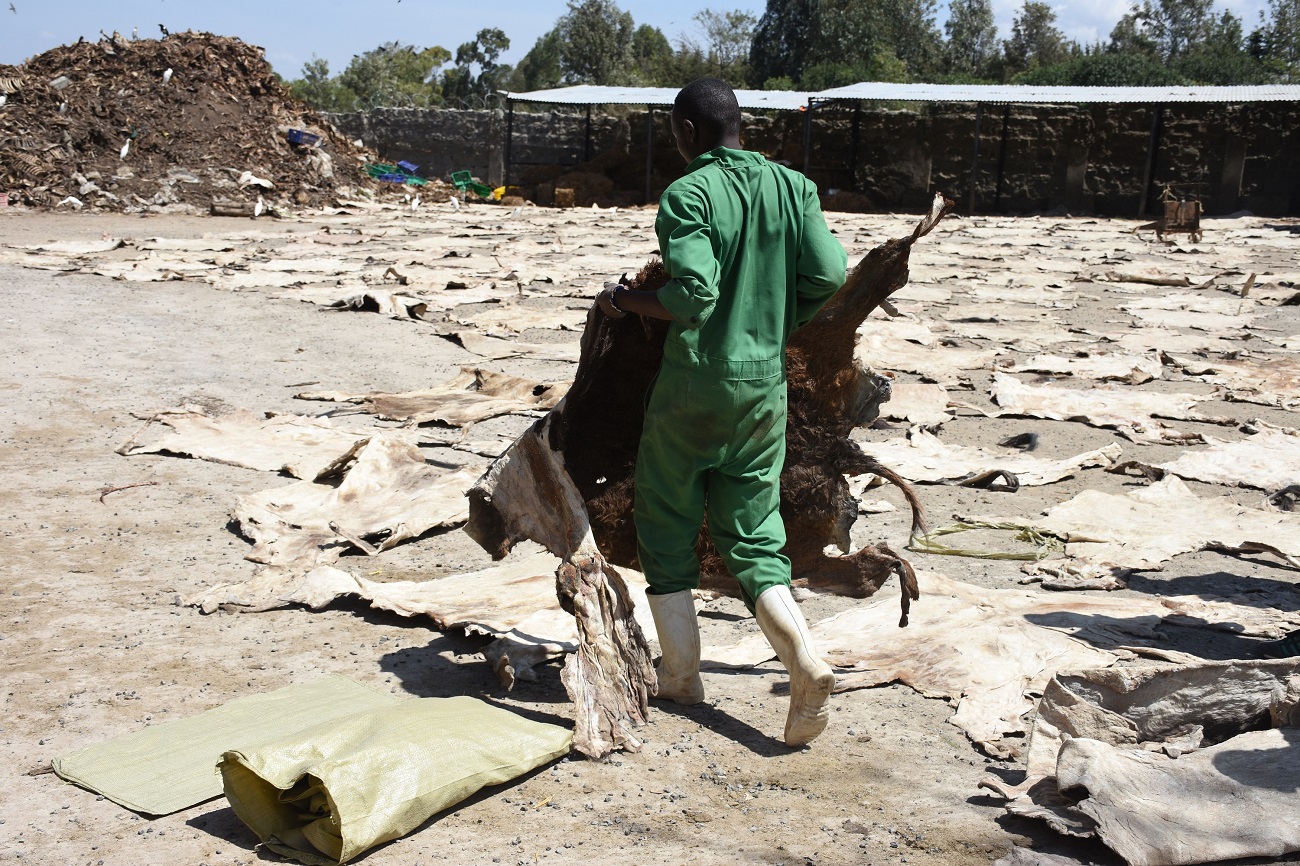Donkeys are in a state of global crisis with the animals facing population collapse across a number of countries as traders target their skins to export as an ingredient for ejiao, a traditional Chinese medicine.
International animal welfare charity The Donkey Sanctuary latest report into the trade, Under the Skin Update, which was launched this week, reveals donkey populations have crashed in a number of countries as increasing demand for ejiao has led to an unsustainable number of donkeys being slaughtered.
Gelatine in donkey hides is a key ingredient in ejiao and The Donkey Sanctuary is now calling for an urgent halt to the largely unregulated global trade in donkey skins before the beasts of burden are wiped out in some areas.
Death by a thousand cuts
The supply of donkey skins cannot meet demand in China, which needs around 4.8 million hides per-year for ejiao production, so traders, mainly in Africa, Asia and South America, are exporting additional skins to China.
In Kenya and Ghana, where the skin trade is booming, donkeys are also being exploited with fears that their numbers could dwindle in the near future.
Government officials in Kenya have expressed serious concerns for their national herd with a slaughter rate of nearly 380,000 annually putting relentless pressure on donkey populations.
“The donkey hide trade will lead to an extinction of the species,” Mr Raphael Ngome of the Kenya Society for the Prevention of Cruelty to Animals warns. “ Kenya faces a future without donkeys.”
Conditions in many donkey slaughterhouses are appalling. The Naivasha slaughterhouse in Kenya was closed in May 2017 after witnesses recorded footage of dead and dying donkeys some with open, maggot-infested wounds.

Aborted foetuses were also seen as well as skinned carcasses dumped next to live donkeys awaiting slaughter. The slaughterhouse reopened soon afterwards.
There will be a two-day conference in Nairobi on the 26th and 27th November with Brooke East Africa, The Donkey Sanctuary and IGAD (Intergovernmental Authority on Development) to discuss how to end the skin trade in the region.
Read Also >> Why More and More People are Turning to Donkey Meat
Donkey populations in China have collapsed by 76% since 1992. Since 2007, donkey populations have declined by 28% in Brazil, by 37% in Botswana and by 53% in Kyrgyzstan.
With just under five million skins needed every year for ejiao production, the industry would need more than half the world’s current population of donkeys over the next five years to meet demand.
A collapse of the global donkey population will have a hugely damaging impact on the livelihoods of an estimated 500 million people in some of the world’s poorest communities that the animals support.
Slaughterhouses
Donkeys transport goods to market, carry water and wood, provide access to education and are a vital source of income for vulnerable communities, particularly women.
Stephen Njoroge from Kiserian, near Nairobi, is totally dependent on his donkeys for his livelihood. “I used my donkeys for general transport, collecting water, taking vegetables to market and carrying construction materials.
“My donkeys were very close together and were stolen the same night. Donkey slaughterhouses are causing donkey thefts in this area – they should be closed down; it is the only way to stop the thefts.”

The report reveals appalling animal welfare abuses and biosecurity risks at every stage of the skin trade both in its legal and illegal forms.
Tens of thousands of donkeys, many of whom are stolen, are rounded up to endure long journeys to slaughterhouses on crowded trucks without access to food, water or rest with an estimated 20% of animals dying on route, in some cases.
Demand for skins is so high that even pregnant mares and young foals, as well as sick and injured donkeys, are indiscriminately caught and transported, contrary to international animal welfare guidelines.
Brutal handlers
The report revealed that many skin trade donkey handlers have little or no training in animal handling, often resorting to cruel and illegal methods of controlling donkeys such as kicking, dragging and the use of spiked sticks called goads.
Donkeys are often brutally slaughtered in front of other animals. Footage obtained by The Donkey Sanctuary from a slaughterhouse in Tanzania revealed animals being repeatedly hit with hammers in failed attempts to stun them.
In Bahia, Brazil, 800 donkeys were found starving to death in holding pens alongside hundreds of rotting carcasses, which had polluted their only water source.
See >> Harvest Time for Jua Kali Traders with Ksh3 Billion Deal. Here is the Catch.
Mike Baker, Chief Executive of The Donkey Sanctuary, said: “This is suffering on an enormous and unacceptable scale. This suffering is not just confined to donkeys as it also threatens the livelihood of millions of people. The skin trade is the biggest threat to donkey welfare we have ever seen. Urgent action needs to be taken.”
The Donkey Sanctuary is calling for the ejiao industry to cut links with the global skin trade and move towards more sustainable sources of raw materials provided by cellular agriculture such as the use of artificially grown donkey-derived collagen.
The charity is also recommending that the Chinese Government suspend the import of donkeys and their products until both can be proven to be disease-free, humane, sustainable and safe and for national governments to take immediate steps to stop the trade.
Next Read >> Unlimited Job Opportunities Found in This Sector













Leave a comment